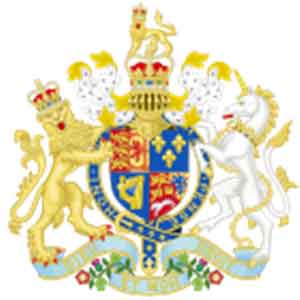
Coat of Arms of Britain
The Declaratory Act was copied from the Irish Declaratory Act, and it won’t take a genius to learn that Parliament would want America, like the Irish, in continuous bondage to the crown. Outcries and outrage followed suit. Colonists called it many things, some of which included “crisis” and “treason.”
That was the start of the unification of the British colonies in America. They realized that there was nothing more they could do to stop the British Parliament from using force upon them. Along with this came the realization that they could fight back and free the Americas from the British rule, “in all cases whatsoever”.
Unification
There was nothing in the world more tightly intertwined than the Stamp Act, the Virginia Resolves, the Stamp Act Congress, the Declaratory Act and the American Revolution. Many people will agree that these related events had been among the most profound in American history, and there is no question that these are the real reasons that ultimately led to the unification of the first thirteen colonies to revolt against the British Parliament.
How it Started!
For a better understanding of the Declaratory Act, it is of utmost importance to know about the events that preceded it.
1. The Stamp Act was passed in 1765. It was an act that made people pay taxes for all written documents including licenses and other legal documents. Even playing cards and dices had a tax from the Stamp Act. This act was passed to help Britain regain the riches and money lost from losing wars with many other countries. Many Colonists showed their displeasure. Some people kept silent, but some did braver responses.
2. One of the most open groups against this act was the Virginia House of Burgesses’ resolves. The Virginia Resolves has originally five resolves, and these resolves stated that all people in a colony has the same, equal rights to everything that a man born in the realm of England has the rights to. It also stated that raising a colony through the imposition of taxes that are unbearable for people is not actually sticking to the rights of the people. This leads to the whole reason for the resolves: there shouldn’t be any unreasonable tax imposed on people.
3. The Stamp Act Congress was much like the Virginia General Assembly, only much bigger. It was to be attended by representatives from the thirteen colonies of Britain in America, and it seeks to make a resolve that would free all colonies from the unreasonable taxes imposed on them by the Stamp Act.
In 1765, the Stamp Act was repealed. Were the problems finally resolved? You could imagine a better world, a life free of unreasonable laws for the Colonies, but no. The problems continued. The British Parliament passed the Declaratory Act, and this made it impossible for any Colonial assembly to pass any binding law. The Declaratory Act only made it clear that there were more acts where it came from and that future acts would be no better than the ones they had.